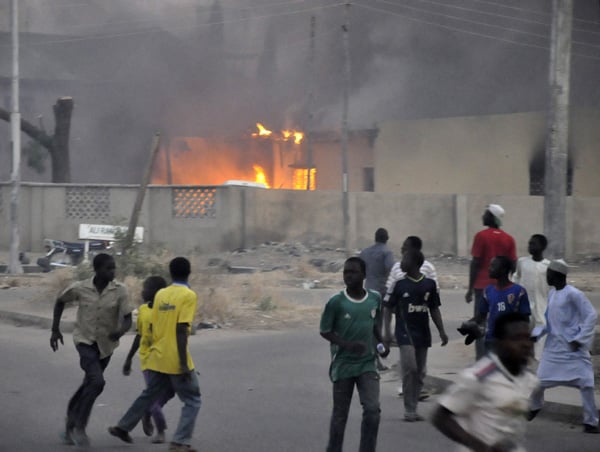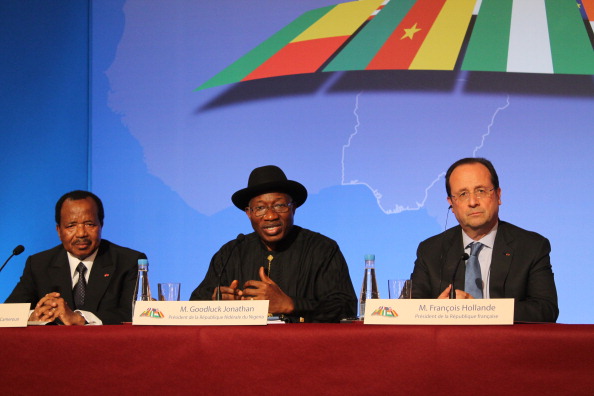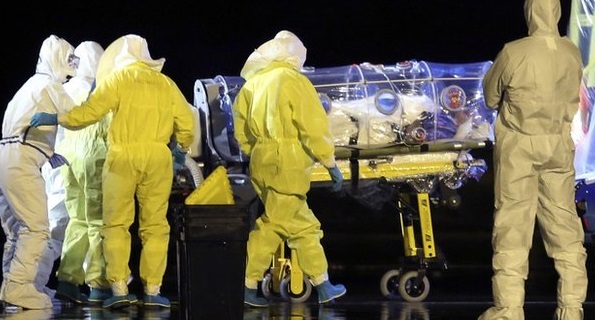Director of the Catholic Social Communication, Maiduguri, Reverend Gideon Obasogie, says Boko Haram has destroyed about 185 churches across the 11 communities they captured in Borno and Adamawa states.
In a statement he released on Monday, Obasogie revealed that while many women have been raped and children killed, several priests have been forced to take refuge in neighbouring communities.
“Residents can no longer return to their houses and places of worship, as 185 churches in the diocese have been torched and 190, 545 people displaced,” he said.
“Our priests are displaced, while citizens who were supposed to celebrate their independence as a free nation were rather counting their losses and regrets as they had been reduced to the status of Internally Displaced Persons, IDPs. Where is the freedom?
Advertisement
“Life is really terribly difficult. We are waiting eagerly to go back home, even as it is obvious that we are going to reconstruct our looted and burnt houses and ecclesial structures.
“We have been sacked for months, sleeping in uncompleted buildings, camps and school premises. We have been absorbed into houses of relations and friends.”
Obasogie said that although people were anxious to return to their homes, the situation was worsening.
Advertisement
He decried the attitude of politicians in communities that had not been invaded by the militants and warned that if government does not redouble its effort to contain the situation, the sect would achieve its aim of keeping children away from education.
“Our children have not been fed and well-clothed, so resumption to schools is practically out of our calculation. In our opinion, if thousands of Nigerian children can’t go to school, then in the long run ‘Boko is really haram’.
“The health condition of our people is truly troubling in their displaced camps in Maiduguri, Mubi, Yola, Uba, Gombe, Biu and Damaturu. Nigerians are waiting to go back to their ancestral homes. We have counted weeks rolling into months; must we also count years? We are waiting to go back home.
“Our minds are greatly troubled, do we think about our status or about our family members yet to be connected with ever since we fled our homes? Do we worry about our aged parents who were not so strong to run? They always fed us with words of encouragement and wisdom.
Advertisement
“Do we worry about our sick members, women and infants who had been trapped? Most of whom we heard had been raped and killed. Or worry about the health, education and future of our children? We have got a lot of questions yet to be answered.
“While our people perish, inaction – or rather slow action – is what we get. Political activities in neighbouring communities were ongoing as though nothing was a stake. The Shehus and Emirs were overturned; this amounts to what I would rather refer to as cultural coup, since unknown figures have been placed in such capacities.
“Thousand displaced, many killed, and others forcibly conscripted. These are pointers that Boko Haram terrorism is not just a northern problem, but a Nigerian problem and in fact a global issue. As a church, we are really going through a severe moment of persecution. The ecclesial circumscription is facing sharp disintegration.”
Advertisement
Add a comment







